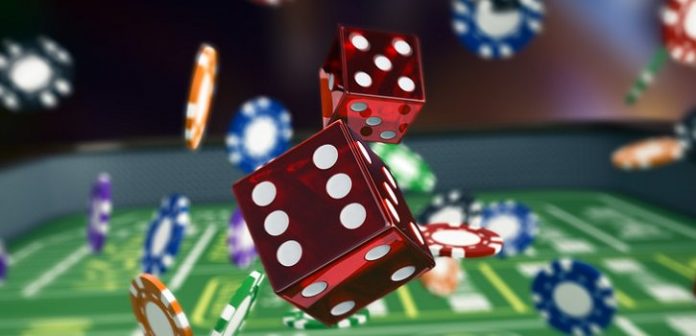Many researchers have noted that single sports gambling has reinvigorated the gaming industry in the United States. Others do not have the same view. They believe, overall, the gaming industry will experience slow growth, especially regarding casinos. An analysis of the industry using Porter’s Five Forces demonstrates the strengths and weaknesses of the gaming industry moving forward.
What Are Porter’s Five Forces?
Economic theorist Michael Porter came up with the Five Forces to explain how companies develop a corporate strategy. The theory also analyzes how a company reacts to outside forces, such as competition. In addition, it looks at how attractive the market is and how profitable the market could become. Porter’s Five Forces are:
Competition in the Industry
 As a whole, the gaming industry is facing different levels of competition. Casinos, which are legal in 30 states, have variable rates of competition. In some states, the Native American casinos have no competition around them because they are not close to each other. This is the case in Ohio, which has tribal casinos, and several race tracks or racinos. In other states, such as New York, there is a mixture of company-owned casinos and tribal casinos. The Empire State has a saturated market, especially in the New York City area. In fact, two recently built casinos in the area have not shown a large profit and are struggling.
As a whole, the gaming industry is facing different levels of competition. Casinos, which are legal in 30 states, have variable rates of competition. In some states, the Native American casinos have no competition around them because they are not close to each other. This is the case in Ohio, which has tribal casinos, and several race tracks or racinos. In other states, such as New York, there is a mixture of company-owned casinos and tribal casinos. The Empire State has a saturated market, especially in the New York City area. In fact, two recently built casinos in the area have not shown a large profit and are struggling.
On the other hand, New Jersey’s online casinos are booming, as are the sportsbooks at the Atlantic City casinos. There is fierce competition for casinos, but the competition for online, mobile, and sports gaming is not as stiff. This is mainly because the industry is either unregulated or just beginning to emerge.
Potential of New Entrants into the Industry
As with competition in the industry, it depends on what kind of gambling entity wants to enter the market. It also depends on where the market is. If the potential gaming business is a casino, market forces indicate very slow growth. This is especially the case if the casino wants to open in an area already saturated with other casinos. It is truer if the casino does not have a name that is well-known. However, for sportsbooks or online/mobile gaming, the prospects are brighter.
Power of Suppliers
In the casino industry, suppliers do not have much power, especially with competition in the area. In addition, casinos can’t raise their prices. Casinos can become more competitive by offering items other casinos do not have, such as food or entertainment. Another thing casinos do is advertise their odds on slot machines or table games. Many casinos also advertise their winners with big checks to entice people to come in and gamble.
Power of Customers
In Porter’s Five Forces model, the power of customers means that they can band together to demand lower prices. Customers can also receive discounts for their purchases. However, in the casino industry, the power of the customers means they can choose to stay away from the casinos. Perhaps, they are fond of another casino in the area. So, that means casinos must work harder for every dollar they make. Online casinos attract people with free rewards, prizes, additional money or cash spins.
The Threat of Substitute Products
Many experts believe that there are two large threats to the gaming industry. One is the threat from within the industry itself – the rise of mobile and online gaming. Experts expect casino gaming to increase in the next five years. The second threat is that of virtual reality (VR) and eSports rather than mobile or online gaming. eSports have seen exponential growth in the last five years. Gaming companies have been looking for ways to join the eSports movement and reap the benefits.
Disclaimer: All images are copyright to their respective owners and are used by USA Online Casino for informational purposes only.












